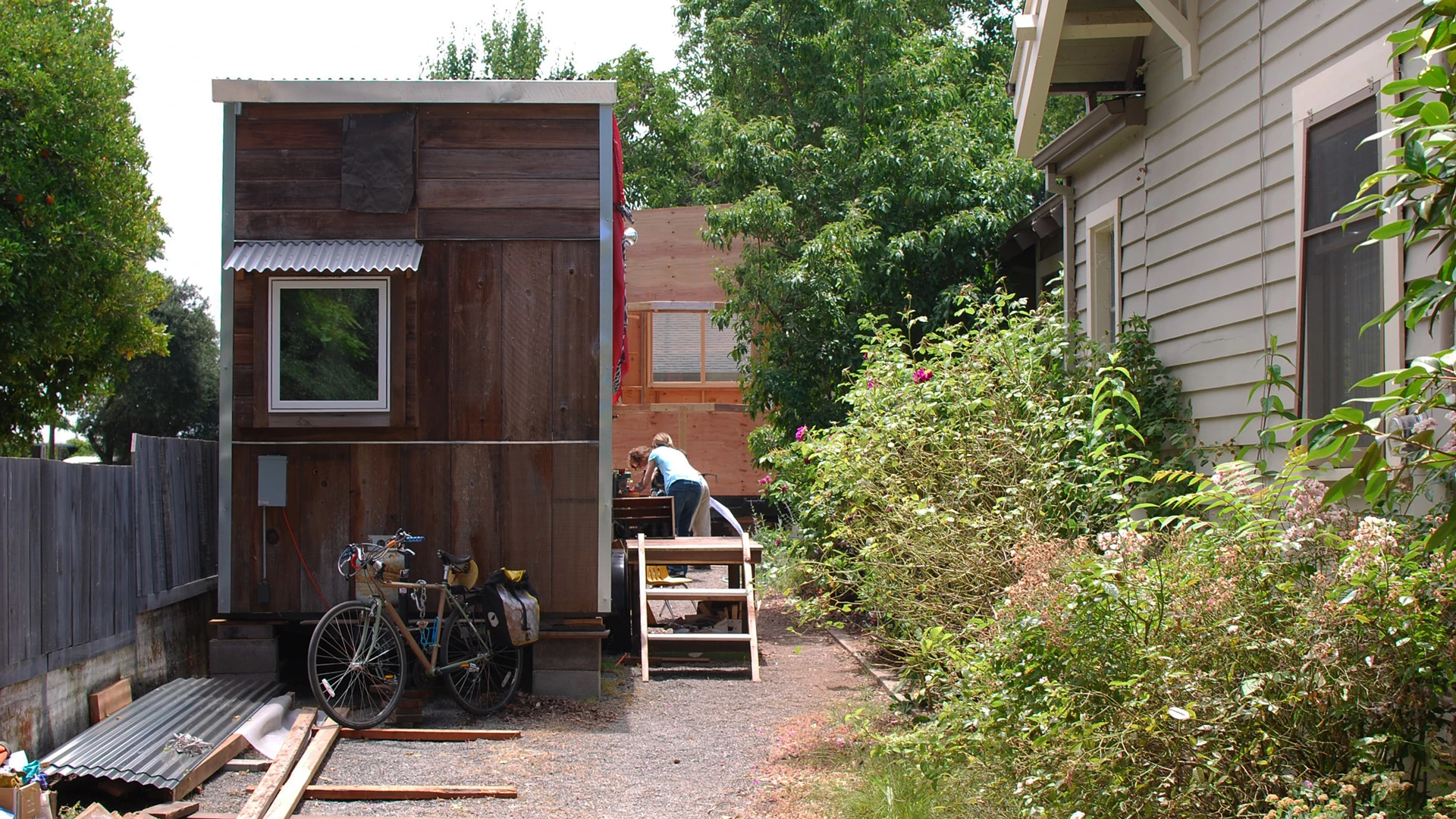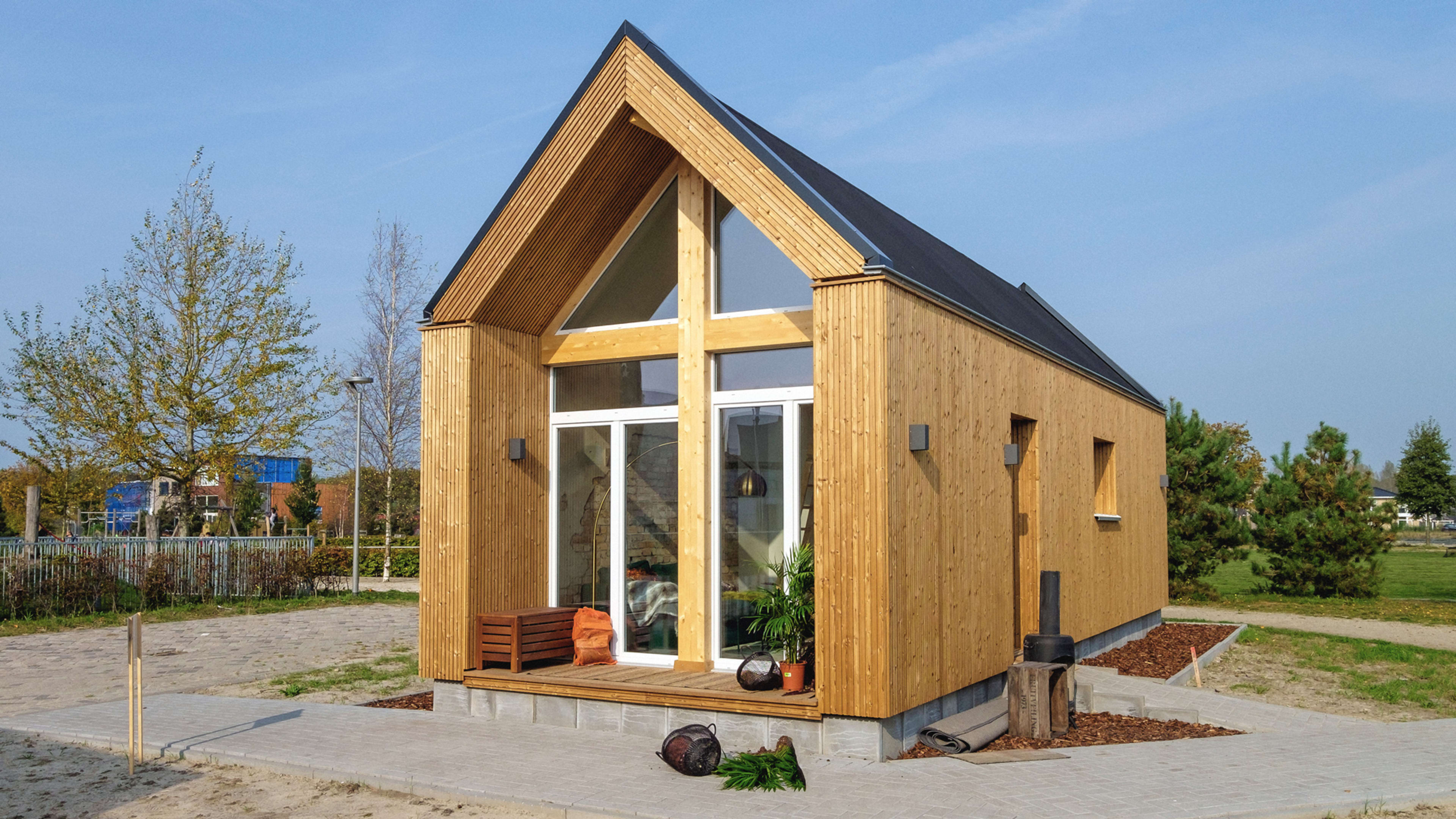In cities with housing shortages, little room to build, and opposition to new construction, building small cottages in backyards can be one way to add new apartments quickly. One new startup wants to help it happen even faster: The company handles the cost and construction process for homeowners in exchange for a cut of the rent when a tenant moves in.
“Right now, to build an accessory dwelling unit is a huge process,” says Spencer Burleigh, cofounder of Rent the Backyard, a Bay Area-based startup in the current cohort at the tech accelerator Y Combinator. “You have to talk with the city and deal with the permits. And even if you can find a great builder that is able to do a lot of those steps for you, you’re still fronting a whole lot of money.”
In California, changes in the state law in 2017 made it easier to build backyard units by reducing excessive fees from utilities and saying that homeowners wouldn’t need to include an extra parking space for a backyard home if they live near public transit. In Los Angeles, the city’s innovation team helped build a prototype backyard home to learn how to streamline the local process. The number of permits issued for the houses grew; in the Bay Area, around 400 units were approved in 2016, and 1,598 in 2017. But that’s still a tiny fraction of the 500,000-plus homes that, by some estimates, need to be built over the next 15 years to keep up with demand.

Burleigh says that many of the homeowners he meets were interested in building backyard homes—also known as accessory dwelling units or ADUs—but found the prospect too onerous. “We hear from homeowners again and again, that they were familiar with ADUs and they’ve been excited about them,” he says. “Maybe they even had a site visit from a builder, but they didn’t feel comfortable enough to pull the trigger and actually start the unit. With us, with the no-money-down solution, and being able to sort of insulate homeowners from those charges and that concern, we’re able to sort of de-risk that construction of an ADU.”
The startup is working with a fellow Y Combinator company, Node, that makes modular, sustainable housing in factories, so that the pieces can be quickly assembled in the backyard. It’s also working with other builders with similar processes. “Most of the builders are building the units almost entirely off-site, so there’s minimal disruption to the homeowner,” Burleigh says. Construction, they say, can take as little as a week and a half.
Rent the Backyard is now beginning to meet with homeowners to begin the process (as we talked, Burleigh was standing outside a home in San Jose waiting to tour a backyard). For now, the company plans to focus on the Bay Area, where high rents make the business model particularly feasible; the company covers the cost of everything, including ongoing maintenance, but can recoup those costs as it takes half of the rent. Owners split the rent with the company over 30 years, at which point they own the ADU outright.
The apartments will rent at the fair market value, but because they’re small studios—with a large living area, kitchenette, and bathroom—they will be at the lower end of that scale. By beginning to fill the enormous gap in available units, the company could help play a role in lowering the region’s average rental prices. CASA, a local organization that studies housing, estimates that 300,000 backyard homes could be added to the Bay Area. “There’s huge potential to build these all over,” says Burleigh.
Recognize your brand’s excellence by applying to this year’s Brands That Matter Awards before the early-rate deadline, May 3.
